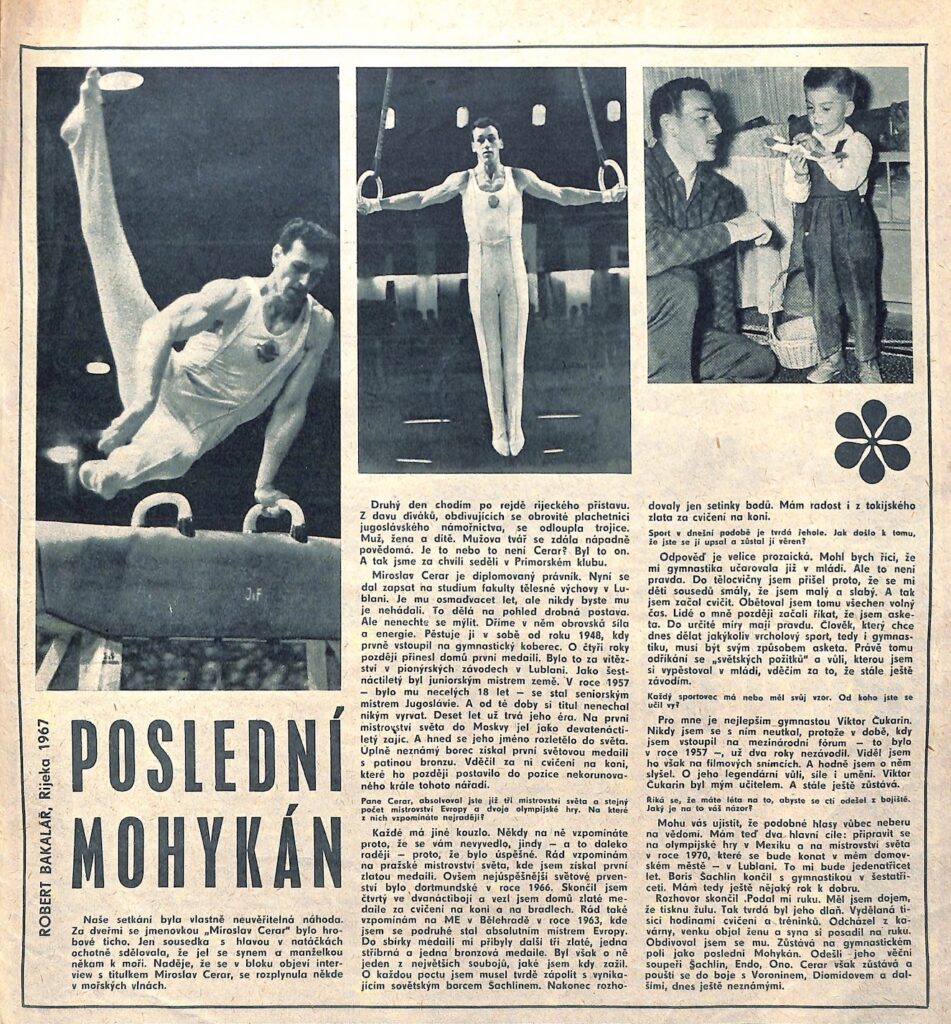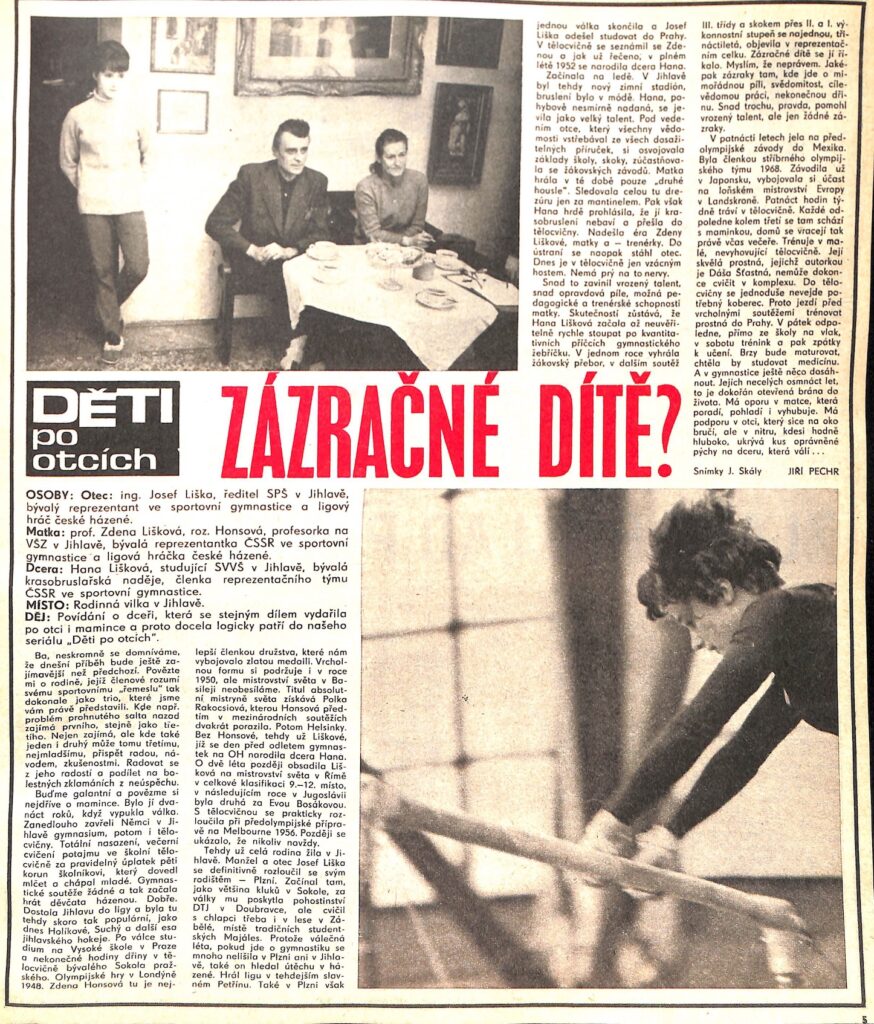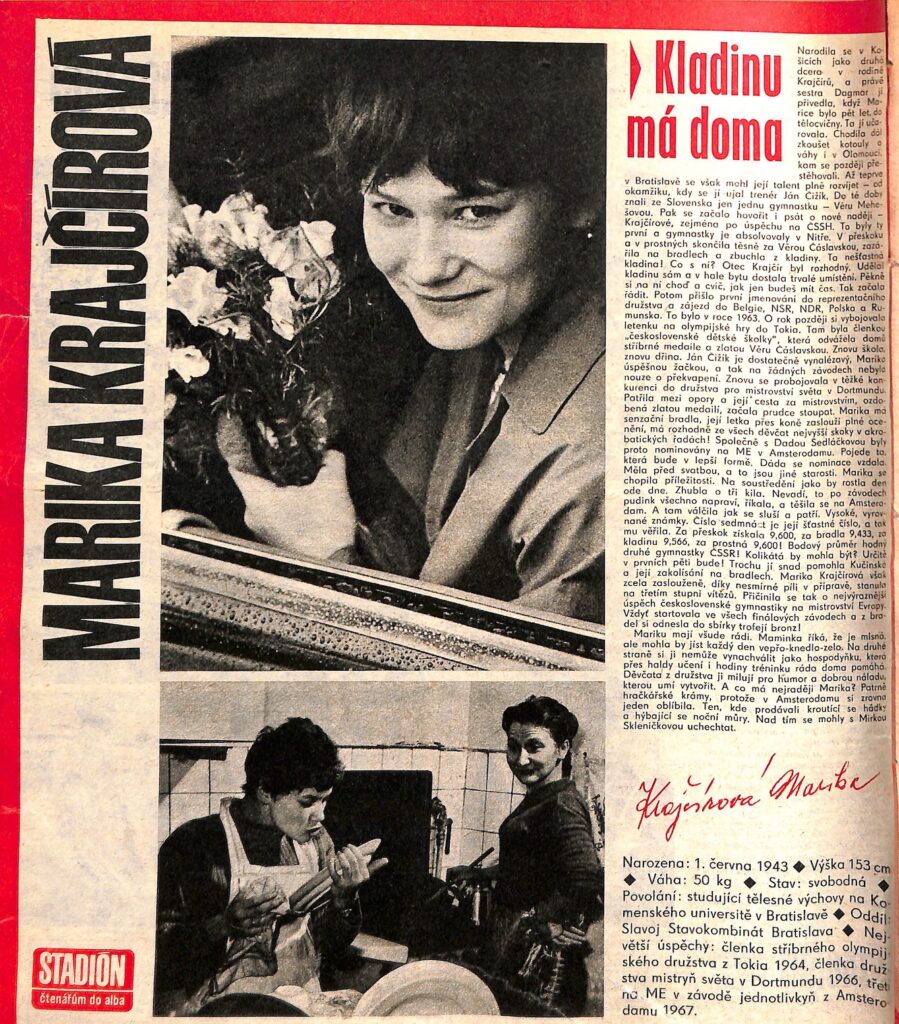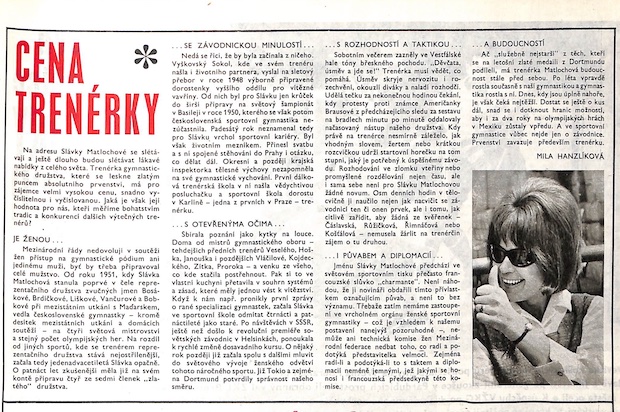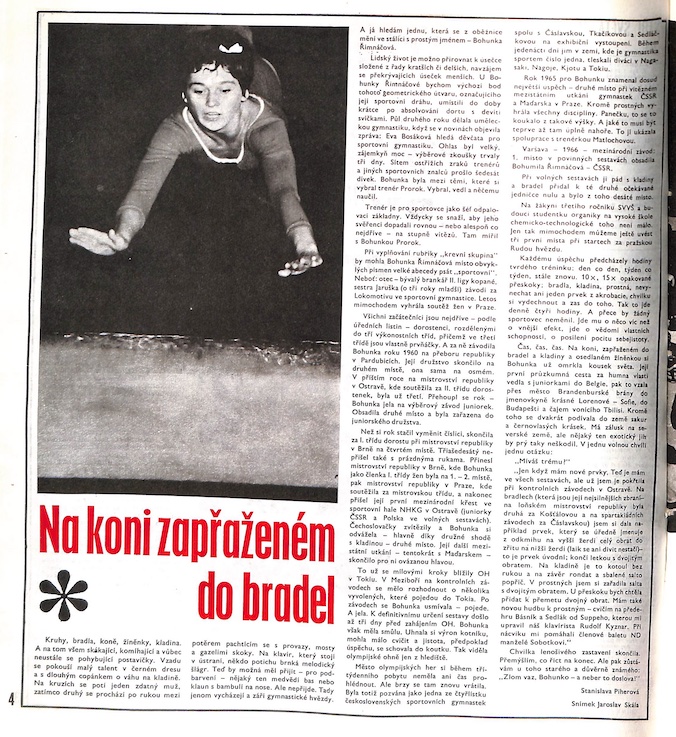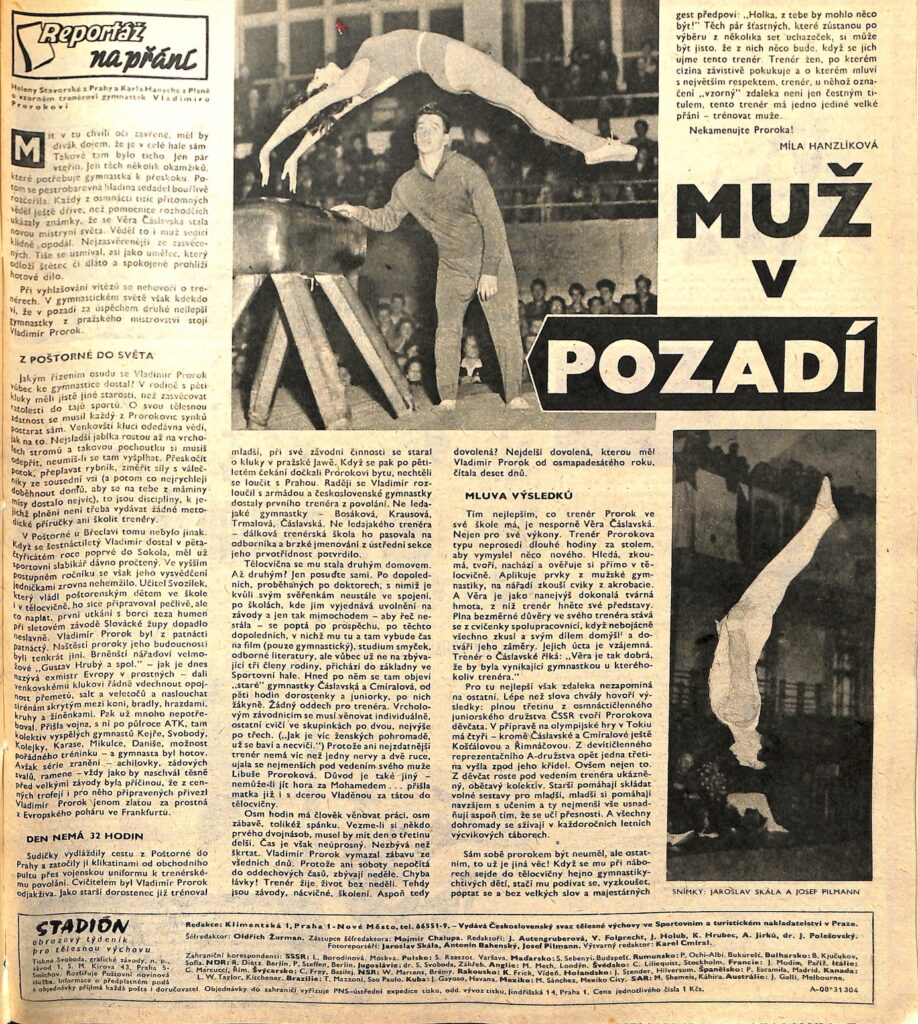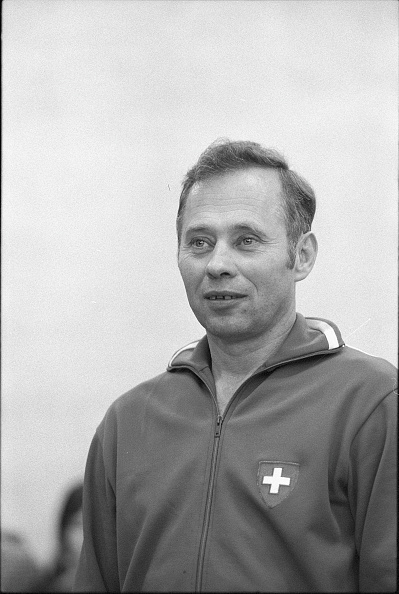From 1956 until 1962, Larisa Latynina dominated the all-around at the major international gymnastics competitions. Then, it was Věra Čáslavská’s turn, and she won the major all-around titles from 1964 until 1968.
Once Čáslavská retired from the sport, there was a power vacuum. The title of the world’s best female gymnast was up for grabs. Who would win the all-around title in 1970? Would it be Karin Janz, who won the all-around at the European Championships in 1969?
The gymnastics world had its reservations about Karin Janz. Sure, she had tremendous difficulty, but she lacked “femininity and softness.” Words like “machine” and “mechanical” were often used to describe her gymnastics.
The following profile of Janz, printed in the Czechoslovak magazine Stadión before the 1970 World Championships, summarizes many conflicted sentiments about the East German teenager.
